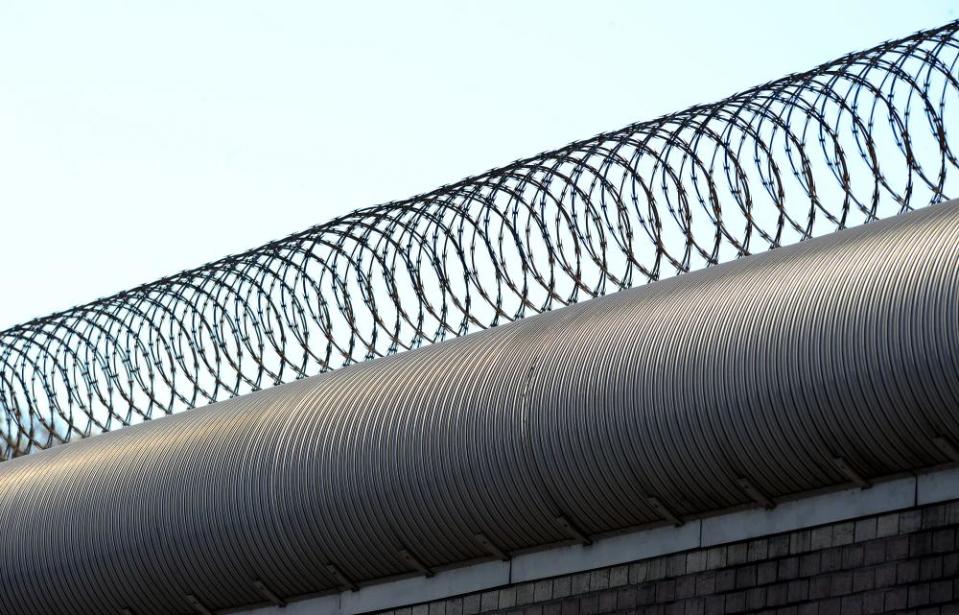Calls for people with mental impairment to get more protections in Victoria’s justice system

Social justice advocates are urging the Victorian government to prioritise a bill that would modernise legislation for dealing with an accused person deemed unfit to stand trial due to mental health issues or cognitive impairment.
The bill was introduced by the former attorney general Jill Hennessy in 2020 but is yet to be debated by the parliament, and would amend the Crimes (Mental Impairment and Unfitness to be Tried) Act 1997.
The bill was introduced after the Victorian ombudsman Deborah Glass in 2018 reported on a the case of a 39-year-old mentally impaired woman, which she said was the saddest she had ever investigated.
Related: Rights watchdog sees 1,445% spike in questions about Victorian government’s powers during Covid
The woman, known only as Rebecca to protect her identity, spent 18 months in a maximum security women’s prison locked in solitary confinement for up to 23 hours a day, screaming with distress for hours on end.
If passed, the bill would improve the review process of indefinite supervision orders to include a more therapeutic approach and insert a statutory definition of mental impairment in the legislation.
It would also improve the legislation’s interaction with the Mental Health Act and Disability Act to offer pathways for less restrictive orders.
Uniting Church Australia’s senior social justice advocate Dr Mark Zirnsak urged the government to bring the bill on for debate.
“We really need to see it passed and not leave this area unaddressed,” he told Guardian Australia.
“We see significant impacts on people who are deemed unfit to stand trial, as highlighted in the case of 2018 by the Victorian ombudsman. To have this bill sitting around now for two years in the parliament is disappointing.”
A Victorian government spokesperson said it was ensuring the bill was “still relevant and fit-for-purpose in the current landscape”.
“These are important reforms and we’re ensuring we get this right,” they said.
“This work is ongoing while we get on with progressing our significant wider legislative agenda.”
Zirnsak said he hoped the Andrews government, which has made mental health reform a key policy pillar, would be “willing to move on this quickly for the benefit of people who are suffering from mental health issues and mental impairment”.
He said the legislation would help prevent cases like Rebecca from arising again.
Rebecca, who was charged with breaching an intervention order taken out by her family and for resisting police, was found unfit to stand trial and was not guilty because of mental impairment. The ombudsman’s report concluded she remained in prison simply because there was nowhere else for her to go.
The judge in her case said she may have only been sentenced to a month in prison if she had pleaded guilty and been sentenced.
Better support services urgently needed, expert says
Dr Chris Maylea, deputy chair of the Victorian Mental Illness Awareness Council and an associate professor of law at La Trobe University, said the council would welcome the reform, which would modernise the current act. He said the main area that needed urgent change was the introduction of better support services.
“One of the things the bill is hoping to achieve is to integrate some of that support a bit more into the forensic systems,” he said.
“If somebody can be supported, for example, within an NDIS package, then that should be taken into account a bit more.’”
The act governs how people are treated by the justice system when they have a serious mental health issue or cognitive impairment that would deem them incapable of standing trial or being held criminally responsible for their offending.
The act also oversees the regime for the supervision and management of this cohort to ensure they receive long-term treatment.
A court can issue supervision orders under the act, and those on custodial orders are generally detained and supervised at the Thomas Embling hospital. Non-custodial orders allows treatment in the community.
The orders are indefinite and can end only when the court deems it appropriate, taking into account risks to the community and treatment progression.
Under Victorian law, people found unfit to stand trial due to mental impairment cannot be detained in prison unless there is no practicable alternative. But people declared liable for a custodial order are sometimes detained in prisons due to insufficient capacity at mental health or disability services.
Lengthy wait times – sometimes up to nine months - triggered the Victorian government to last year announce a $350m funding package for Thomas Embling – run by government agency Forensicare – that would result in an additional 82 beds.
In most circumstances, Forensicare supervises people with a mental illness under the act.
A Forensicare spokesperson said it was currently overseeing 97 people on a custodial supervision order at Thomas Embling hospital. Additionally, seven people deemed liable for supervision under the act are awaiting an available bed at the facility.

 Yahoo News
Yahoo News 